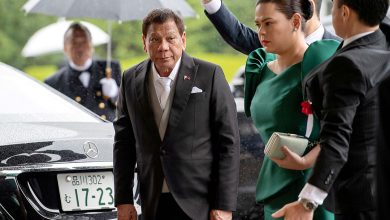Why the PPP is ideal for public service infrastructure projects

Infrastructure projects implemented under a Public-Private Partnership (PPP) scheme are advantageous to the government in terms of improving transparency and accountability, shifting taxpayers’ liability to the users, and improving the delivery of public service.
Such are the findings of the comparative study which I, together with Stratbase ADR Institute, conducted on the New Centennial Water Source-Kaliwa Dam Project (NCWS-KDP) and Wawa Bulk Water Supply Project-Upper Wawa Dam (WBWSP-UWD), otherwise known as the Kaliwa Dam Project (KDP) and Upper Wawa Dam (UWD) respectively.
Foremost, we looked at the regulatory framework as a key area of comparison between the two dam projects. Generally, frameworks in the form of laws, regulations, decrees, and policies can be mandatory and coercive, or voluntary (i.e., integrity pacts, codes of conduct, and policy agreements). They are designed to mitigate corruption, even though they are not enough to prevent and fight it on their own. They are fashioned to ensure policy compliance, transparency, accountability, and fairness. Overall, regulatory frameworks aim to strike a balance between facilitating economic activities and safeguarding societal well-being. Project owners and stakeholders are expected to follow regulatory guidelines and requirements to improve processes, strengthen security, and achieve other business objectives.
The study explored two relevant regulatory frameworks under which the KDP and UWD projects have been subjected to: Official Development Assistance (ODA) on one hand, and PPP, on the other hand. The former is governed by RA 8182 or the Official Development Assistance Act of 1996 (as amended by RA 8555 in 1998). The latter is governed by a hybrid PPP (RA 6957 or Build-Operate-Transfer Law of 1990 as amended by RA 7718 in 1994, and Executive Order 30 of 2023 which re-organized the PPP Governing Board).
On the participation of the private sector in national development and involvement in competitive bidding on government infrastructure projects and consulting services, Sec. 20, Art. 2 of the 1987 Philippine Constitution and RA 9184 (Government Procurement Reform Act of 2002), respectively, are relevant. The latter identifies the principles of transparency, competitiveness, system of accountability, and public monitoring of the procurement process (Sec. 3, Art. 1).
Conceptually, PPP involves collaboration and cooperation between a government agency and a private-sector company. They are engaged in financing, building, and operating projects that can be used to finance, build, and operate large-scale government projects such as roads, bridges, or public transportation networks, hospitals, and infrastructure projects for social, economic, and cultural development, among others. With private funding, such a partnership makes these projects possible in the first place and allows them to be completed sooner.
Considering the PPP framework and benefits, the UWD opted for a business-to-business (B2B or B-to-B) transaction between WawaJVCo., Inc. (UWD’s project owner) and Manila Water Co., Inc. (MWCI, one of MWSS’ water concessionaires) through an “offtake agreement” to obtain easy finance. Conceiving the agreement within the context of a B2B transaction, Melvin Tan, President of WawaJVCo., Inc., said that the 30-year contract between WawaJVCo., Inc. and MWCI guarantees not only a long-term partnership between two private enterprises, but also secures the repayment of debts to their creditors.
In March 2023, Mr. Tan said in an interview that “(T)he Wawa Bulk Water Supply Project is (also) a private-public partnership between the Metropolitan Water Sewerage System (MWSS) and WawaJVCo.” He added that “the government’s involvement is mainly to step in if the concession agreement between Manila Water and MWSS expires in 2037.” Clearly, in the case of the UWD and MWCI partnership, government participation and collaboration are ensured through the enforcement of the concession agreement entered between MWSS and MWCI.
In a nutshell, it is argued that although PPP and B2B are conceptually different, they do overlap in certain cases, more so B2B can operate within the PPP context. In the same light, any unresolved dispute on the offtake agreement between WawaJVCo., Inc. and MWCI has to be arbitrated by Philippine courts. The government enforces the terms of contracts between parties to the degree that companies bring one another to court just as individuals do.
It appears, therefore, that a hybrid framework of PPP fulfills not only the commercial interest of private enterprises but also efficiently delivers a project and service traditionally provided by the public sector.
Dr. Rizal G. Buendia is a non-resident fellow of the Stratbase ADR Institute.




